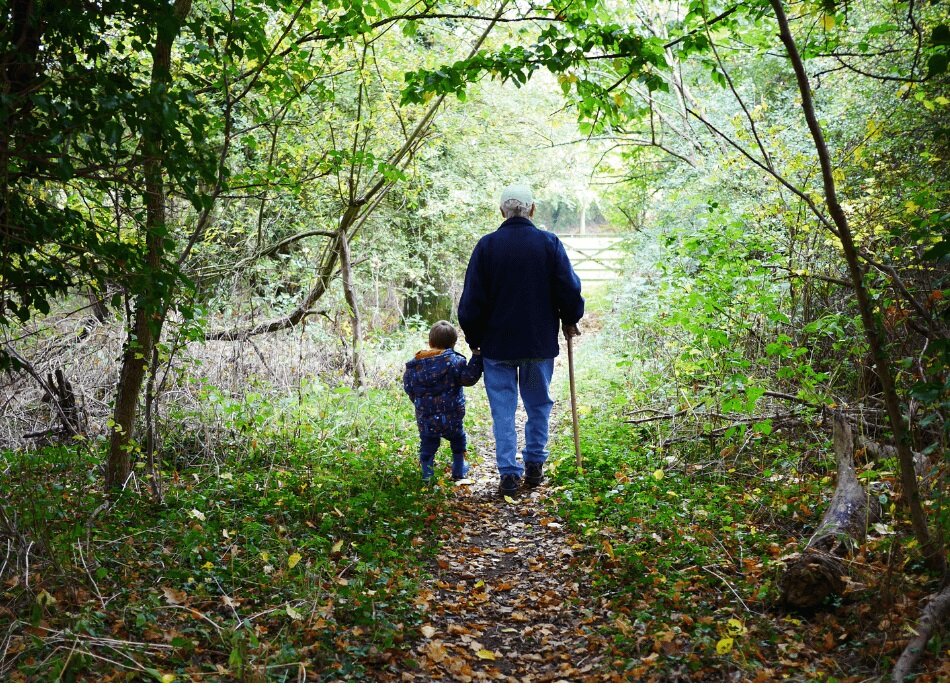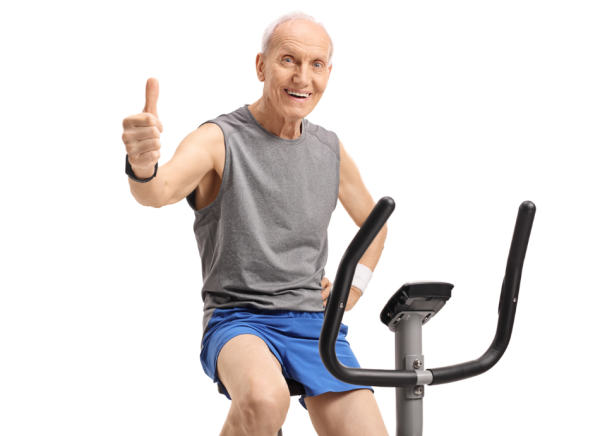You can now add Healthify as a preferred source on Google. Click here to see us when you search Google.
Living well with Parkinson's disease
Key points about how to live well with Parkinson's
- Living well with Parkinson's means taking good care of yourself.
- Self-care includes exercising and eating well.
- It's important to get personal support from whānau and friends.
- Support is available to help you with your condition and your finances.

Exercise
- Exercise is vital for people with Parkinson's.
- Exercise improves movement, balance and co-ordination along with overall health and wellbeing.
- It appears to improve your body's reaction to dopamine.
- Aim for a minimum of 20 to 30 minutes of daily exercise, including stretching exercises (these are especially helpful).
- All movement is good. Exercise designed for people with Parkinson's is ideal. Parkinson's New Zealand can help with a specific exercise programme(external link), and some private gyms also offer Parkinson's specific exercise classes – have a look on the internet.
- Always consult your healthcare provider before starting any new exercises.
- Read more about Parkinson's and exercise.

Image credit: Depositphotos
Diet
- A healthy diet will give your body the nutrition it needs to stay healthy.
- Increasing the amount of water you drink and the fibre you eat helps prevent constipation
- If you have low blood pressure, especially when you first stand up, you may be advised to eat more salt.
- As time goes by you may lose weight and need a high energy diet or nutritional supplements.
Vaccinations
- Everyone with a long-term condition is encouraged to get a free yearly flu jab each autumn. Vaccination against COVID-19 is recommended.
- The pneumococcal vaccination is also usually recommended. This one-off injection protects you against a serious chest infection called pneumococcal pneumonia. It's not funded by the government.
- Many people try complementary therapies. Read more about Parkinson's and complementary therapies.(external link)
Driving
- Over time, Parkinson’s may affect your ability to drive safely. As the condition progresses, you may need to adjust your driving. Talk to your healthcare provider about this so you can make plans to stay as much independent as possible.
- Read more about the Total Mobility scheme and coping without a car.
Modifications
- You will work out ways to do the things you want to do, and others with Parkinson’s will share their tips with you. For example choosing to meet at a café with wide sliding glass doors, or using Velcro instead of buttons or laces.
- Occupational therapists and physiotherapists, available through your hospital clinic, will help with walking aids, and tools to make things easier around your home and work.
End of life
As Parkinson's progresses, you'll be invited to discuss the care you want when you near the end of your life with your healthcare team. This is known as palliative care. When there's no cure for an illness, palliative care aims to treating symptom and make the end of your life as comfortable as possible. Talking about what you want in advance gives you more say in where and how you would like to be cared for.
Read more about advance care planning and appointing a Power of Attorney to speak for you if you can't speak for yourself.
Apps reviewed by Healthify
You may find it useful to look at some Parkinson's apps, physiotherapy and exercise apps and self-management and healthy living apps.
Personal support
Being diagnosed with a long-term condition such as Parkinson's disease can be difficult to come to terms with. Talk to people you're close to about your experience and if you have any questions about your condition, ask your healthcare provider. You may also find it helpful to talk to a trained counsellor or psychologist. Your healthcare provider may be able to recommend someone or you can find a counsellor or therapist(external link).
Some people find it helpful to talk to others with Parkinson's disease, either at a local support group or online. Parkinson's (external link)New Zealand(external link) (0800 473 4636) provide support and information for people with any Parkinsonism condition. This includes local services and support, support for carers and UPBEAT, a special interest group for people with early-onset Parkinson's, their whānau and friends. See also Parkinson's New Zealand's resources for carers(external link).
The Duncan Foundation(external link) provide support including physiotherapy assessments for people who have been diagnosed within the past 12 months.
Multiple Sclerosis and Parkinson’s Canterbury(external link) (03 366 2857) helps members maintain health and wellness throughout their journey.
Financial support
You may be eligible for a community services card(external link) or a disability allowance(external link) to help with your medical costs.
Being diagnosed with Parkinson's doesn't mean you have to stop working. Many people keep working for years after their diagnosis. However, if you do need to work less or stop work, you may be entitled to financial support through Work & Income NZ(external link).
Video: Intimacy, sexuality and Parkinson's (7:03)
In this interview, Dr Sheila Silver talks about sex and intimacy for people with Parkinson's.
(Parkinson's New Zealand, 2017)
Video: Dance for Parkinson's (9:03)
David Leventhal, Programme Director, Dance for PD, talks about the goals of the Dance for Parkinson's project(external link). This is available in some parts of Aotearoa New Zealand and online.
(Parkinson's New Zealand, 2016)
Video: Dr Adam Sims – non motor symptoms of Parkinson's (3:44)
Psychiatrist Dr Adam Sims recommends ways to manage non-motor symptoms of Parkinson's. .
(Parkinson's NZ, 2014)
Video: Nutritionist Alison Cowell – nutrition and Parkinson's (3:43)
Nutritionist Alison Cowell talks about how to eat a balanced diet for people with Parkinson's.
(Parkinson's NZ, 2014)
Watch more videos from experts about living with Parkinson's at Parkinson's New Zealand.(external link)
Brochures
Living with Parkinson's(external link) Parkinson's UK
You're diagnosed with Parkinson's – self-management(external link) Woodlands Health, Singapore, 2024
Apps
Parkinson's apps
Physiotherapy and exercise apps
Self-management and healthy living apps
References
- Exercise and Parkinson's(external link) American Parkinson Disease Association, US(external link)
- Parkinson disease(external link) Community HealthPathways Auckland, NZ, 2024(external link)
- New Zealand Immunisation Handbook(external link), NZ, 2025(external link)
- Medical aspects of fitness to drive(external link) New Zealand Transport agency, NZ, 2024
See our page Parkinson's disease for healthcare providers
Credits: Healthify editorial team. Healthify is brought to you by Health Navigator Charitable Trust.
Reviewed by: Dr Emma Dunning, Clinical Editor and Advisor
Last reviewed:





